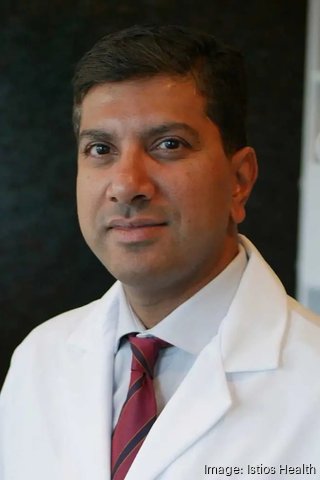Istios Health completes merger, lands capital to scale infectious disease platform
Article from https://www.bizjournals.com/phoenix/news/2025/08/05/istios-merges-with-nod-health.html
A Valley health tech company is building out a platform that improves infectious disease care and research after merging with a local telehealth firm and securing more capital.
Istios Health in June merged with NoD Health, a Phoenix-based digital specialty care telehealth company. Now, the combined company — which continues to operate as Istios Health — has its sights set on developing the world’s largest commercial repository for infectious disease data, growing its network of physicians and expanding biopharmaceutical partnerships.
“We are building the operating system for infectious disease, designed to improve patient care and physician satisfaction,” Nick Carlucci, Istio Health’s cofounder and chief operating officer, said in a statement. “From rural hospitals to biotech sponsors, our infectious disease platform connects the dots for smarter care, better research, and stronger outcomes.”
Istios closed a $5.6 million seed round led by BIP Ventures with participation from RVM Enterprises, which is the family office of Dr. Roger Medel, who is the founder and former CEO of Pediatrix. Medel joined Istios Health’s board of directors as chairman.
As part of the business combination, NoD Health founder Madhu Murthy now serves as an Istios Health cofounder and the company’s head of clinical partnerships.
Madhu Murthy, Istio Health’s cofounder and head of clinical partnerships.
The company will use the new seed investment to build out a proprietary technology platform — ID Navigator — that integrates telehealth, clinical research and data across its national network of physicians and hospitals, acting as a one-stop shop for infectious disease discovery, patient management and care, according to the company.
“We want to make this platform much more robust and intuitive for our patients and our facility partners,” Murthy told AZ Inno. “We want to provide care to patients and participate in clinical trials, which are a huge step in developing new drugs and vaccines.”
Murthy, a physician and board-certified infectious disease specialist, was inspired to launch NoD Health in 2019 after realizing the “standard approach” to infectious disease treatment needed to change.
Murthy noticed patients often had to wait four to six weeks for an appointment with a specialist, prompting him to start researching technology to improve patient access to specialty care.
After NoD Health developed its telehealth specialty care platform, it grew rapidly during the pandemic amid stay-at-home orders and delays with appointment scheduling, Murthy said.
Istios develops network of clinical trial sites
Murthy sought to position the telehealth company for further national growth and connected with Istios Health Cofounder and CEO Niko Nikolopoulos through mutual industry contacts, leading to a business partnership.
“It was going to be a broader business beyond infectious disease and work across a number of specialties,” Nikolopoulos said. “But we saw an opportunity to create a completely integrated model for infectious disease that wasn’t just telemedicine.”
Looking ahead, Istios Health plans to create a nationwide network of embedded clinical trial sites focused on infectious diseases, allowing life sciences companies to accelerate patient trial recruitment and product validation under one roof.
The company has already established seven clinical trial sites, including a location in the Valley with plans for a second site in Tucson, Nikolopoulos said.
In addition to clinical trials, Istios Health aims to close a care gap for hospitals and community-based health care organizations by improving post-hospital discharge infection management, encouraging appropriate use of antimicrobial medications and expanding clinical trial diversity, among other things.
Istios, which has 44 employees, serves patients through its telehealth platform in Arizona, Colorado, New Mexico, Kansas, Michigan and Minnesota.
“We have medicalization in those six states and we’re able to see patients — whether they’re at a skilled nursing facility or a primary care doctor is sending the patient to us,” Murthy said.
